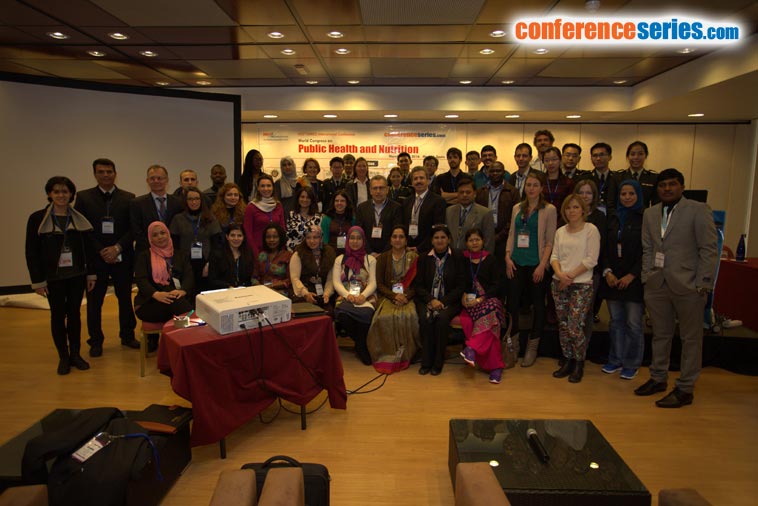
Jara Pérez-Jiménez
Institute of Food Science, Technology and Nutrition, Spain
Title: Antioxidant capacity of the Spanish Mediterranean diet: A whole approach including macromolecular antioxidants
Biography
Biography: Jara Pérez-Jiménez
Abstract
Epidemiological and clinical studies show that diets with a high antioxidant capacity (AC) reduce the overall risk of cardiovascular diseases, neurodegenerative diseases or certain kinds of cancer. However, these studies focus exclusively on low molecular weight or soluble antioxidants (vitamins C and E, phenolic compounds and carotenoids), ignoring macromolecular antioxidants. These are polymeric phenolic compounds or polyphenols and carotenoids linked to plant food macromolecules that yield bio-available metabolites by the action of the micro-biota, with beneficial effects either local and/or systemic after absorption. The aim of this work was to estimate the AC of a whole diet -the Spanish Mediterranean Diet (MD) considering for the first time both soluble and macromolecular antioxidants. Plant food and beverage consumptions in the Spanish diet were based on national 2013 data obtained from 12,000 daily household spending questionnaires. From this, 54 food and beverages were selected and soluble and macromolecular antioxidants were obtained. Antioxidant capacity was measured in both fractions by two complementary methods and expressed in Trolox equivalents- the standard units for AC. From these data, it was obtained that total AC of the Spanish MD was 8,000 µmol Trolox/p/day with the 61% provided by macromolecular antioxidants. Therefore, the first determination of Antioxidant Capacity in a diet (Spanish MD) including macromolecular antioxidants shows that these commonly ignored compounds are major contributors to total AC. Including macromolecular antioxidants in mechanistic, intervention and observational studies on dietary antioxidants may contribute to a better understanding of the role of antioxidants in nutrition and health.rnrn
Speaker Presentations
Speaker PPTs Click Here


